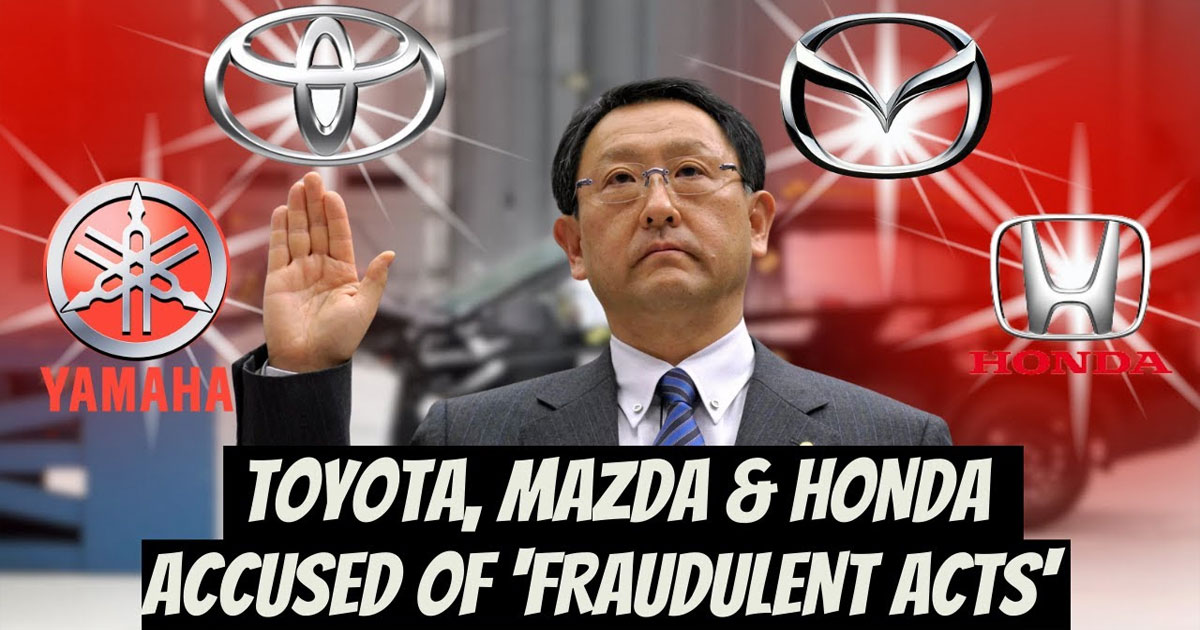Toyota’s reputation just took a $15 billion hit, safety tests

Toyota’s sterling reputation just took a $15 billion hit after the car giant was found falsifying safety tests
In a dramatic turn of events, Japan’s transport ministry raided Toyota’s headquarters on Tuesday. This raid follows revelations that the automotive giant submitted faulty safety data during certification tests. The scandal has sent shockwaves through the Japanese car industry, affecting several major automakers and raising serious questions about industry practices.
The Impact of Faulty Safety Data
Toyota, the world’s largest carmaker, admitted to manipulating or providing incorrect data for safety certification tests. This admission has caused widespread concern and has severely impacted the company’s reputation. Despite the scandal, Toyota emphasized that the faulty data does not compromise the safety of vehicles currently on the road.
The automaker has sold over 11 million passenger vehicles in 2023 alone. However, in light of the recent findings, Toyota has halted the production of three car models: the Corolla Fielder, Corolla Axio, and Yaris Cross. These models will no longer be available until the company resolves the issues related to their safety certifications.
Modified Vehicles in Safety Tests
Compounding the scandal, Toyota has been accused of using modified vehicles during safety collision tests. These modified vehicles do not reflect the actual cars that were produced and sold, further complicating the situation. Such practices undermine the integrity of the safety certification process and raise significant concerns about the reliability of these tests.
Apology from Toyota Chairman Akio Toyoda
In response to the scandal, Toyota Chairman Akio Toyoda publicly apologized to customers and car enthusiasts. In a deeply symbolic gesture, Toyoda bowed deeply and held the position for several seconds, a customary act of contrition in Japan. He admitted that the company had neglected the certification process and mass-produced cars without taking proper precautionary steps.
Toyoda’s apology underscores the gravity of the situation and the company’s commitment to rectifying its mistakes. He emphasized that Toyota is taking these issues seriously and will work diligently to restore trust among its customers.
Broader Implications for Japanese Automakers
The scandal has not been limited to Toyota alone. Other Japanese carmakers, including Honda, Mazda, and Suzuki, have also admitted to submitting faulty data. This widespread issue suggests a deeper, systemic problem within the industry.
Honda disclosed that it found irregularities in tests related to noise and engine power but maintained that its vehicles are safe to drive. The company is cooperating with authorities and is prepared to face inspections.
Mazda, on the other hand, has halted shipments of some cars and pledged to bear the costs incurred by its suppliers. However, Mazda has stated that it does not plan to issue recalls at this time, indicating that it believes the issues can be addressed without such drastic measures.
Suzuki has also been implicated, with the findings affecting one of its car models that is no longer in production. This indicates that the problem spans multiple manufacturers and models, highlighting the need for comprehensive industry-wide reforms.
Daihatsu’s Involvement and Shutdown
The scandal has also enveloped Toyota-owned carmaker Daihatsu. Last December, Daihatsu admitted to falsifying safety tests, leading to the shutdown of all its factories for over a month. This move affected numerous suppliers and highlighted the extensive reach of the safety testing issues.
During the shutdown, Daihatsu compensated more than 400 domestic suppliers, demonstrating the significant economic impact of the scandal. Some of the cars implicated in Daihatsu’s wrongdoing were sold with Toyota branding, further complicating the situation for the parent company.
Moving Forward: Restoring Trust and Integrity
The current scandal has put Japanese automakers under intense scrutiny. The need for transparency and integrity in safety testing processes has never been more critical. As these companies work to resolve their issues, they must prioritize restoring customer trust and ensuring the reliability of their safety certifications.
Toyota and other affected automakers must implement robust measures to prevent future occurrences of such problems. They need to revise internal processes, enhance oversight, and ensure accurate, reliable data submission for certification.
Industry-Wide Repercussions
The scandal’s repercussions extend beyond individual companies, affecting the entire Japanese automotive industry. Regulatory bodies will likely increase their scrutiny of safety certifications, and automakers will need to adapt to more stringent standards.
Consumers, too, will be more vigilant and discerning, demanding greater transparency and accountability from manufacturers. This shift in consumer expectations will drive automakers to uphold higher standards in all aspects of their operations, from production to certification and beyond.
Conclusion
The Toyota safety testing scandal serves as a wake-up call for the entire automotive industry. As Japan’s transport ministry continues its investigations, all eyes are on how these companies will address their shortcomings and restore their reputations. For Toyota, Honda, Mazda, Suzuki, and Daihatsu, the path forward involves not only rectifying current issues but also implementing lasting changes to ensure such problems do not arise in the future.
By taking decisive action and prioritizing safety and transparency, these companies can rebuild trust with their customers and reaffirm their commitment to producing reliable, high-quality vehicles. The scandal has undoubtedly shaken the industry, but it also presents an opportunity for significant positive change.

